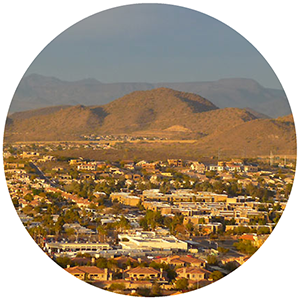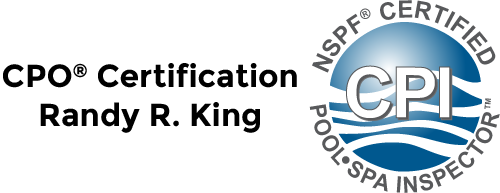Pricing
Due to the variety of pools, pricing is based on actually viewing the pool in person. Our prices typically beat any of the large pool companies in the area. We currently do not publish our low rates to prevent other companies from copying us. Call us and see the difference – you may be able to save hundreds of dollars a year. Viper Pool Service prides itself on giving customers honest and dependable service at a competitive price.
Half Service
This is our most popular service
- All services performed on a weekly basis**
- Test water Chemistry
- Total Chlorine – Free Chlorine – PH – Total Alkalinity
- Balance pool chemicals and shock pool as necessary
- Backwash filter as needed (DE / Sand filters)
- Verify pool pump and filter operation
- Empty skimmer and pump baskets
- Brush pool walls and steps
- Lubricate pool pump and backwash O-rings as needed
- Leave a pool service slip showing what chemicals were added to your pool
Our half service is perfect for pools with an operational in floor cleaning system or side wall pool cleaners. Homeowner is responsible for all skimming and pool vacuuming.
Full Service
This is our most comprehensive pool care service – We do it all
- All services performed on a weekly basis**
- Test water Chemistry
- Total Chlorine – Free Chlorine – PH – Total Alkalinity
- Balance pool chemicals and shock pool as necessary
- Backwash filter as needed (DE / Sand filters)
- Verify pool pump and filter operation
- Empty skimmer and pump baskets
- Brush pool walls and steps
- Vacuum pool as needed
- Skim leaves and debris from water surface
- Lubricate pool pump and backwash O-rings as needed
- Leave a pool service slip showing what chemicals were added to your pool
Our full service pool care is for the homeowner wanting to swim in their pool, not clean the pool. Spend your time enjoying the pool, not worrying about it. We do it all!
** Our weekly service is for 50 stops per year. We are closed the week of Thanksgiving and Christmas
Pool Requirements:
Viper Pool Service requires all pool to have a working pool cleaning system; either in floor or side wall mounted cleaner. Large / diving pools may have an additional charge. Pools that have an attached spa will incur an additional charge. Heavy backyard foliage may incur an additional cost. Because each pool and backyard are different, we only provide pool service costs in person. Requires annual charge for PoolRx mineral unit. Additional charges apply for Phosphate Remover. DE and Cartridge filters should be cleaned every 6 months for optimum life and water clarity. Filter cleanings are charged separately from monthly services.
Service Areas

North Phoenix
85085, 85024, 85027, 85050, 85083

Peoria
85382, 85385

Glendale
85310, 85308, 85306
Pool FAQs
The following are the standard chemical checks performed on a WEEKLY basis
TOTAL CHLORINE
This is the measure of the total chlorine in the water. This includes both free chlorine and combined chlorine.
FREE CHLORINE
This is the measure of the available chlorine to sanitize the water. Free chlorine is the type that we commonly test for to determine the proper chlorine levels in pool water
COMBINED CHLORINE
This is the amount of chlorine that has been “used up” sanitizing your water. Combined chlorine, generically called chloramines, is caused by a number of factors including the environment, urine, sweat, etc.
The presence of combined chlorine in pool water can lead to the cause of a chlorine like smell often experienced in indoor pools. High levels of combined chlorine can be eliminated by a process called “Super-Chlorination”. Adding shock to a pool is the basic way to eliminate combined chlorine.
The formula to calculate combined chlorine is:
COMBINED = TOTAL – FREE
PH
PH is the measure of the acidity of the pool water. The acceptable range for PH is 7.2 to 7.8. The PH of tears from a human eye approximately 7.5. Soda ash is used to raise the PH, while Muriatic acid is used to lower the PH.
TOTAL ALKALINITY
This is a measure of the ability of water to resist changes in PH. Total alkalinity helps to hold PH in the ideal range; too low and PH will dramatically bounce from high to low, if too high this may cause “PH Lock” which makes it difficult to change the PH. Muriatic acid is used to lower total alkalinity.
The following are the non-standard chemical checks performed on a SEMI-ANNUAL or ANNUAL basis
PHOSPHATES
Phosphates, in simple terms, is food for algae. Sources of phosphates include, but are not limited to, fertilizers, sweat, urine, skin, dead bacteria, algae, traces of feces and bird droppings. All pools will require phosphate remover, to some degree, on an annual basis. Pools that have phosphates will experience a higher than normal chemical (chlorine) usage and will be more difficult to maintain correct water chemistry balance.
TOTAL HARDNESS
The total harness is the sum of calcium and magnesium. The calcium content of the water is present naturally and is very difficult to lower in pool water. Tap water, in the Phoenix area, is typically very hard and may have high total hardness levels. If the house water has high total harness levels, the only way to lower calcium hardness is to use a water softener. High calcium levels cause scaling as seen by a white buildup on the pool tile at the water surface.
STABILIZER (Cyanuric Acid)
Cyanuric acid, also called stabilizer, is used to stop sunlight from depleting chlorine in the water. If there is no stabilizer in the water, any chlorine added to the pool will be depleted quickly resulting in the pool turning green quickly. Due to the amount of sunlight in Arizona, the stabilizer level is maintained somewhat higher than in other parts of the country. If the stabilizer level is too high, this may affect other chemical water balance parameters. The only way to lower the stabilizer level is to drain the pool and add fresh water.
TOTAL DISSOLVED SOLIDS (TDS)
This is a measurement of all products dissolved in the water including chemical byproducts, user waste, cosmetics, pollution, and wind borne debris. Evaporation removes pure water and leaves the dissolved solids behind. Once TDS reaches approximately 1500 parts per million (ppm) above the source (house) water, the pool must be drained and refilled. TDS is a measurement of the age of the water. The higher the TDS, the older the water in the pool is.
Pool water chemistry balance is the most important factor to ensure the chlorine is available to disinfect any contaminates entering the pool. Keep in mind, chlorine will attack any foreign body in the pool water and this includes leaves and wind borne debris. If the pool is not kept clean, there is a high chance the chlorine in the water will be used up by the debris and cause the pool to turn green or become infested with algae. Pool cleaning is like brushing your teeth – unless done on a regular basis, it can lead to expensive solutions.
SAND FILTERS
Sand filters are the oldest type of filtration and use special sand to trap debris. Water with suspended pollutants passes through the grains of sand and the debris is trapped in the small crevices and openings between the sand particles. Sand filters provide the worst water clarity compared to DE or Cartridge filters. Sand filters lose the ability to trap pollutants over time, leading to poor water clarity, requiring the sand to be replaced every 3-5 years.
Sand filters must be backwashed to remove the trapped pollutants and debris. The amount of water required to perform the backwashing is extremely large and therefore these filters are considered the least efficient in conserving water.
DIATOMACEOUS EARTH (DE) FILTERS
DE filters use a white powder material (Diatomaceous Earth) made up of skeleton-like fossils of diatoms. These filters will remove the smallest particle size of any pool/spa filtration device. DE filters will provide the best water clarity.
DE powder is extremely hazardous and proper care must be taken to not ingest DE powder. Per a leading DE powder supplier: “Breathing crystalline silica dust in excess of the permissible exposure limit can cause silicosis, a progressive sometimes fatal lung disease. Crystalline silica has been classified as a known carcinogenic for humans.”
Although DE filters provide the best water clarity, the required backwashing and subsequent cleaning of the grids (every 6 months) will leave spent DE powder in and around the filter, potentially leading to health issues.
CARTRIDGE FILTERS
Cartridge filters use a replaceable filter media. These are the most convenient filters for swimming pools and spas. There is no need to backwash the filter, resulting in water savings compared to sand or DE filters. Cartridge filters must be taken apart and cleaned a minimum of every 6 months to maintain the filter grids. Failure to clean the filter elements on a regular basis, may result in torn or compressed elements, forcing a replacement. Cartridge filters provide a water clarity between sand and DE filters and provide the best overall clarity/cost ratio of any of the swimming pool filters. Cartridge filters are becoming more common and are replacing DE and sand filters due to the water savings.
SINGLE SPEED PUMPS
Banned by Arizona law. The original and oldest swimming pool pumps use a single speed (3450 rpm) motor to circulate the pool water. The only operation of these pumps is either on or off. When the pump is on the electricity cost is very high. Per Arizona law – Title 44 – approved Jan 01, 2012 – single speed pool pumps are no longer allowed and have effectively been banned from being installed or replaced. The only approved use of the single speed pool pump is for pool water features, not for filtration or pool cleaning.
2 SPEED POOL PUMPS
Allowed by Arizona law. The 2 speed pool pump has 2 fixed speeds to circulate the pool water. Typically the high speed is used to clean the pool, using an in floor system or side wall cleaner. The low speed is only used to circulate and filter the water; the low speed will not activate the in floor system or side wall cleaner.
VARIABLE SPEED POOL PUMPS
Allowed by Arizona law. The variable speed pool pump has up to 8 speeds to circulate the pool water. The initial cost to install a variable speed pump is quite high, however, the electricity cost savings will more than pay for itself in a few years. Depending on the setup, a typical homeowner can experience up to 80 percent reduction in electricity vs. a single speed pool pump.
Variable speed pool pumps cannot be retro-fitted to an existing single speed pump. Installing a variable speed pump will require replacing / modifying the existing plumbing and is typically included in the selling price.

